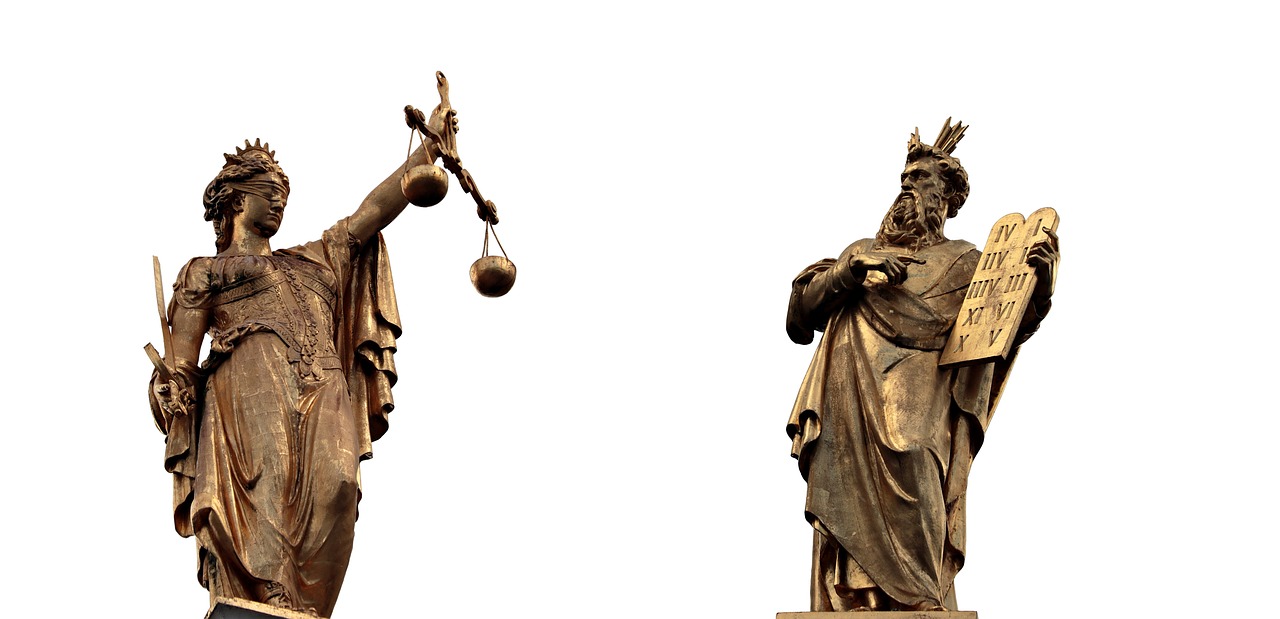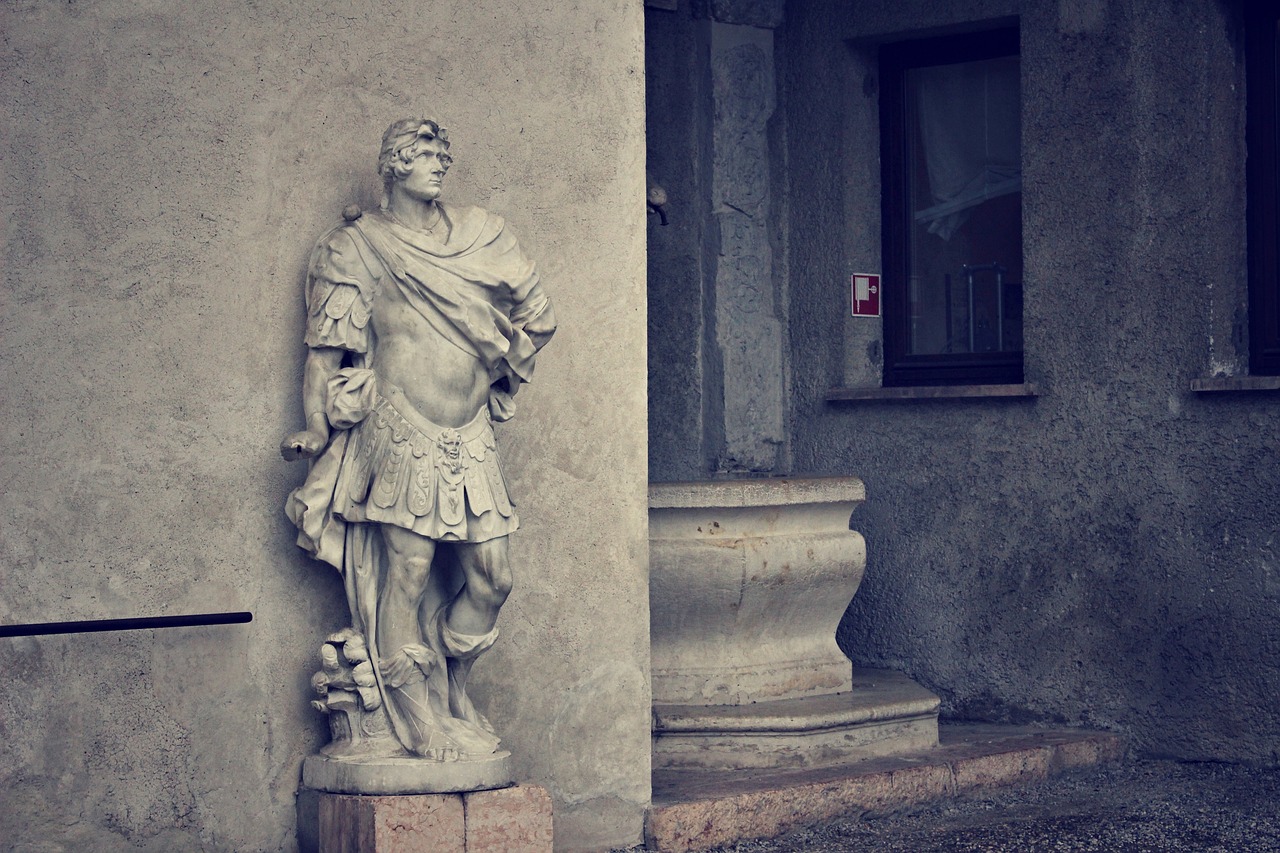The Legacy of the Roman Empire on Modern Law
The legacy of the Roman Empire on modern law is profound and far-reaching, with its influence extending across continents and centuries. The legal principles and institutions established by the Romans have left an indelible mark on the development of legal systems worldwide, shaping the very foundations of justice, governance, and rights as we know them today.
One of the key aspects of this legacy lies in the development of legal codes. The Romans were pioneers in codifying laws, with notable examples such as the Twelve Tables and Justinian's Codification setting the stage for the creation of comprehensive legal frameworks. These ancient codes laid the groundwork for the elaborate legal systems that exist in the modern world.
Furthermore, the principles of jurisprudence introduced by the Romans continue to influence legal thinking to this day. Concepts such as the presumption of innocence, equality before the law, and the importance of legal reasoning have become fundamental pillars of modern legal systems, guiding the interpretation and application of laws.
The impact of Roman legal concepts is particularly evident in civil law systems, where the legacy of Roman law is deeply ingrained. Regions like Europe and Latin America have drawn extensively from Roman legal traditions, adapting them to suit contemporary needs while maintaining a sense of continuity with the past.
Moreover, the role of Roman legal institutions, including the Senate, magistrates, and courts, has had a lasting impact on the structure and function of modern legal systems. These institutions provided the framework for the administration of justice and the resolution of disputes, setting a precedent for the organization of legal bodies today.
Another aspect of the Roman legal legacy is the adoption of Latin legal terminology in contemporary legal language. Many legal terms and phrases used today can be traced back to their Latin roots, preserving the heritage of Roman law and highlighting the enduring influence of ancient legal practices.
In the realm of common law traditions, Roman legal principles have also played a significant role. The interaction between Roman law and common law systems has led to both convergence and divergence in legal reasoning and precedent, shaping the development of legal doctrines over time.
Furthermore, the legacy of Roman legal concepts extends to the field of international law, where principles of Roman origin have influenced the formulation of treaties, human rights standards, and diplomatic relations. The enduring relevance of these concepts underscores the lasting impact of Roman legal traditions on the global legal landscape.
As we reflect on the continued relevance of Roman legal traditions, we are faced with challenges posed by modern legal complexities and the ongoing debate over the universality of legal principles versus the need for cultural specificity. The legacy of the Roman Empire on modern law serves as a reminder of the enduring power of ancient legal systems to shape the course of legal history.

Development of Legal Codes
Exploring how Roman legal principles and institutions have influenced modern legal systems worldwide, shaping concepts of justice, governance, and rights.
Tracing the evolution of Roman legal codes has been a journey through time, revealing the profound impact they have had on contemporary legal frameworks. From the foundational Twelve Tables, which laid the groundwork for legal principles in Roman society, to Justinian's Codification, a comprehensive compilation of laws that influenced legal systems for centuries, the development of legal codes in Rome has left an indelible mark on modern law.
The Twelve Tables, crafted in 450 BC, represented a significant milestone in legal history by providing a written code of laws accessible to all Roman citizens. These laws covered various aspects of civil, criminal, and procedural matters, establishing a framework for justice and accountability. Similarly, Justinian's Codification in the 6th century AD consolidated centuries of legal knowledge into a single authoritative text, serving as a model for legal systems across the world.
Through the preservation and adaptation of Roman legal codes, contemporary legal systems continue to draw upon the principles and precedents established in ancient Rome. The legacy of these legal codes is not just historical but remains a living testament to the enduring influence of Roman law on modern jurisprudence.
Examining how Roman legal concepts have shaped civil law systems in Europe, Latin America, and other regions highlights the continuity and adaptability of Roman legal principles. The legacy of Roman legal codes transcends borders, contributing to the development of legal frameworks that prioritize fairness, consistency, and the protection of individual rights.
Discussing the legacy of Roman legal institutions such as the Senate, magistrates, and courts in the structure and function of modern legal systems reveals the enduring influence of Roman governance on contemporary legal practices. These institutions served as pillars of justice and administration in ancient Rome, laying the foundation for the establishment of legal norms and procedures that continue to guide legal systems today.
Exploring the persistence of Latin legal terms in contemporary legal language underscores the significance of preserving Roman legal heritage in modern legal discourse. The use of Latin terminology not only pays homage to the origins of legal principles but also facilitates a deeper understanding of legal concepts rooted in Roman law.
Investigating the influence of Roman legal principles on common law systems reveals the intricate interplay between different legal traditions. While common law systems have developed distinct approaches to legal reasoning and precedent, the influence of Roman legal principles can be seen in areas where the two traditions intersect, enriching the diversity and depth of legal interpretation.
Examining how Roman legal concepts have influenced the development of international law sheds light on the enduring relevance of ancient legal principles in a global context. The principles of justice, equality, and diplomatic relations rooted in Roman law continue to shape international legal frameworks, emphasizing the universal values that transcend cultural boundaries.
Reflecting on the enduring legacy of Roman legal traditions in the face of modern legal complexities prompts a critical examination of the balance between legal universalism and cultural specificity. As legal systems evolve to address contemporary challenges, the timeless principles of Roman law serve as a guiding light, navigating the complexities of justice, governance, and rights in a rapidly changing world.
To be added at a later stage.

Principles of Jurisprudence
The in Roman law served as the foundation for many modern legal systems, influencing how justice is administered and rights are protected. One of the key principles that emerged from Roman jurisprudence is the presumption of innocence, which forms the basis of criminal law in many countries today. This principle ensures that individuals are considered innocent until proven guilty, a fundamental aspect of fair legal proceedings.
Additionally, the concept of equality before the law was a central tenet of Roman legal philosophy. This principle emphasized that all individuals, regardless of their social status or background, should be subject to the same laws and receive equal treatment under the legal system. This notion of legal equality continues to shape modern legal systems, promoting fairness and justice for all.
Furthermore, Roman jurisprudence placed a strong emphasis on legal reasoning and the application of logical principles in legal decision-making. This rational approach to law helped establish a framework for interpreting and applying laws in a consistent and systematic manner, ensuring predictability and stability in legal outcomes.
These principles of jurisprudence not only influenced the development of legal systems in Europe but also had a lasting impact on legal traditions in other parts of the world. By examining the core principles of Roman law, we can gain valuable insights into the evolution of modern legal systems and the enduring legacy of Roman legal thought.

Influence on Civil Law Systems
When examining the influence of Roman legal concepts on civil law systems, it becomes evident that the legacy of the Roman Empire has left a profound impact on legal frameworks across various regions. The principles and institutions developed during the Roman era have significantly shaped the evolution of civil law systems in Europe, Latin America, and beyond.
One of the key aspects of the Roman influence on civil law systems is the emphasis on written laws and codification. The Roman legal tradition of creating comprehensive legal codes, such as the Twelve Tables and Justinian's Codification, laid the foundation for modern legal systems that prioritize clarity and accessibility of laws. This approach to legal codification has been adopted and adapted by civil law systems, contributing to the development of structured and organized legal frameworks.
Furthermore, Roman legal principles such as the presumption of innocence and equality before the law have become fundamental tenets of civil law systems. The idea that individuals are innocent until proven guilty and that all individuals are equal in the eyes of the law reflects the enduring influence of Roman jurisprudence on concepts of justice and fairness within civil law.
In addition to principles, Roman legal terminology continues to permeate contemporary legal language in civil law systems. Latin legal terms, rooted in Roman legal heritage, are still used in legal discourse to describe concepts and procedures. This linguistic continuity serves as a reminder of the historical connection between modern civil law systems and the legal traditions of ancient Rome.
Moreover, the structure of Roman legal institutions, such as the Senate, magistrates, and courts, has influenced the organizational framework of civil law systems. The division of powers, the role of judges, and the hierarchy of courts in modern civil law systems can be traced back to the organizational principles established by the Romans, highlighting the enduring impact of Roman legal institutions.

Role of Legal Institutions
Legal institutions play a crucial role in upholding the framework of modern legal systems, with their roots often traced back to the institutions of the Roman Empire. The Roman Senate, comprised of elected officials representing the interests of the people, served as a legislative body responsible for passing laws and overseeing governance. Similarly, modern parliaments and congresses echo the democratic principles embodied by the Roman Senate, emphasizing representation and decision-making processes.
Magistrates in ancient Rome held significant authority in administering justice and enforcing laws, akin to the roles of judges and law enforcement officials in contemporary legal systems. The concept of judicial independence, where magistrates were expected to uphold the law impartially, continues to be a cornerstone of modern legal institutions, ensuring fair and transparent legal proceedings.
Courts in the Roman Empire served as venues for resolving disputes and dispensing justice, with legal proceedings guided by established rules and procedures. The legacy of Roman courts can be seen in the structure of modern judicial systems, with emphasis on due process, the right to a fair trial, and the principle of judicial review. The influence of Roman legal institutions on the organization and function of contemporary courts underscores the enduring impact of ancient legal practices.

Adoption of Roman Legal Terminology
When delving into the realm of legal language and terminology, one cannot ignore the profound impact of Roman influence. The adoption of Roman legal terminology has left an indelible mark on contemporary legal discourse, serving as a testament to the enduring legacy of Roman legal heritage. Latin terms such as habeas corpus, pro bono, and amicus curiae continue to permeate modern legal vocabulary, bridging the gap between ancient legal traditions and present-day practices.

Impact on Common Law Traditions
When exploring the impact of Roman legal principles on common law traditions, one cannot overlook the profound influence that ancient Roman jurisprudence has had on the development of modern legal systems. The roots of common law, with its emphasis on judicial decisions and precedent, can be traced back to the Roman legal tradition of using prior rulings as a basis for current judgments. This practice of relying on case law to interpret and apply legal principles echoes the Roman approach to legal reasoning, albeit with distinct variations in methodology and application.
Furthermore, the notion of legal precedent, a cornerstone of common law systems, finds its origins in the Roman concept of stare decisis, which emphasizes the importance of adhering to established judicial decisions. The Roman legal maxim "Ubi jus ibi remedium" (where there is a right, there is a remedy) resonates with the common law principle of providing legal remedies based on established legal principles and precedents.
While common law systems have evolved independently from Roman legal traditions, the legacy of Roman jurisprudence continues to shape the foundational principles and practices of modern legal systems. The interplay between Roman legal concepts and common law traditions highlights the enduring influence of ancient legal philosophies on contemporary legal frameworks, illustrating the dynamic evolution of legal thought over centuries.

Legacy in International Law
When examining the legacy of Roman legal concepts in international law, it becomes evident that the influence of ancient Roman jurisprudence extends far beyond national boundaries. The principles of justice, equality, and legal reasoning that originated in Roman law have permeated the development of international legal frameworks, shaping the way nations interact and resolve disputes on a global scale.
One significant aspect of the Roman legacy in international law lies in the establishment of fundamental human rights and the concept of treaties as binding agreements between sovereign states. The Roman emphasis on the protection of individual liberties and the sanctity of agreements has laid the groundwork for modern international conventions and treaties that govern relations between nations.
Moreover, the diplomatic traditions of ancient Rome, characterized by formalized procedures for negotiation and conflict resolution, have influenced the protocols and practices of international diplomacy. The use of diplomatic immunity and the recognition of diplomatic envoys as inviolable representatives draw upon Roman precedents that prioritize the maintenance of peaceful relations between states.
Within the realm of international law, the legacy of Roman legal concepts manifests in the recognition of customary international law based on longstanding practices and principles shared by nations. Just as Roman law evolved through the accumulation of legal customs and precedents, contemporary international law relies on established norms and practices to govern the conduct of states in the global community.
Furthermore, the enduring influence of Roman legal thought can be observed in the development of international legal institutions such as the International Court of Justice and the United Nations, which embody the principles of justice, impartiality, and adherence to legal norms that have roots in Roman jurisprudence. The establishment of a rules-based international order reflects the Roman commitment to a system of laws that govern the behavior of states and ensure the peaceful resolution of disputes.

Continued Relevance and Challenges
When considering the continued relevance of Roman legal traditions in the modern legal landscape, it is evident that the legacy of the Roman Empire extends far beyond historical textbooks. The enduring influence of Roman legal principles on contemporary legal systems underscores the robustness and adaptability of these ancient foundations. Despite the passage of centuries and the evolution of societal norms, the core tenets of Roman law continue to shape the way justice is administered and rights are protected.
However, this enduring legacy also presents challenges in the face of modern legal complexities. As legal systems grapple with globalization, technological advancements, and shifting cultural landscapes, the tension between universal legal principles and cultural specificity becomes increasingly pronounced. The debate over whether a universal set of legal norms can adequately address the diverse needs of societies around the world remains a point of contention among legal scholars and policymakers.
Moreover, the adaptation of Roman legal concepts to fit the intricacies of contemporary legal frameworks poses its own set of challenges. While the fundamental principles of Roman law provide a solid foundation, their application in a world vastly different from ancient Rome requires careful consideration and interpretation. Balancing tradition with innovation, continuity with evolution, remains a delicate task for legal practitioners seeking to uphold the legacy of Roman jurisprudence.
Despite these challenges, the relevance of Roman legal traditions endures as a testament to the enduring power of ideas. Just as the Roman Empire left an indelible mark on the map of the ancient world, its legal legacy continues to shape the contours of justice, governance, and rights in the modern era. By navigating the complexities of the past and present, legal systems can harness the wisdom of antiquity to meet the challenges of the future.
Frequently Asked Questions
- What is the significance of Roman legal principles in modern law?
The legacy of Roman legal principles in modern law is profound. Concepts such as the presumption of innocence, equality before the law, and legal reasoning have shaped legal systems worldwide, influencing notions of justice and governance.
- How have Roman legal codes impacted contemporary legal frameworks?
The development of legal codes like the Twelve Tables and Justinian's Codification laid the foundation for modern legal systems. These codes influenced the structuring of laws and the administration of justice in various regions.
- What role did Roman legal institutions play in shaping modern legal systems?
Roman legal institutions such as the Senate, magistrates, and courts have had a lasting impact on the structure and function of modern legal systems. They provided a framework for governance and the resolution of disputes.
- How has Roman legal terminology persisted in contemporary legal language?
The adoption of Latin legal terms continues to preserve the Roman legal heritage in modern legal discourse. These terms carry historical significance and contribute to the continuity of legal traditions.
- What is the ongoing relevance of Roman legal traditions amidst modern legal complexities?
Despite the evolution of legal systems, Roman legal traditions remain relevant in addressing contemporary legal challenges. The debate over legal universalism versus cultural specificity reflects the enduring influence of Roman legal principles.



















